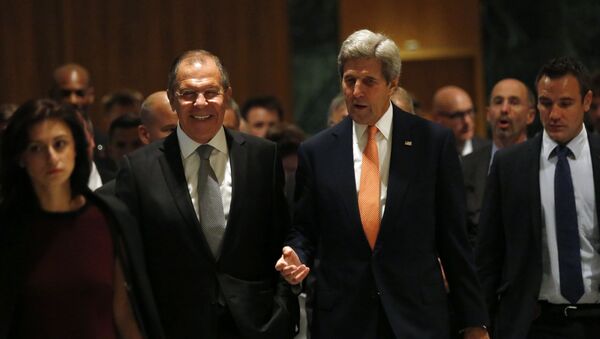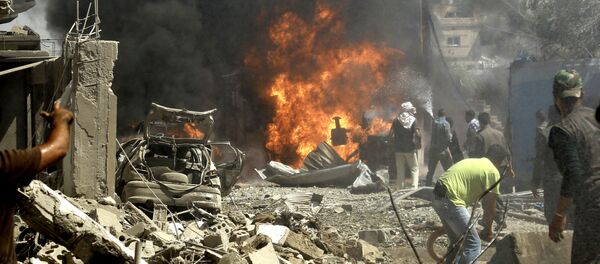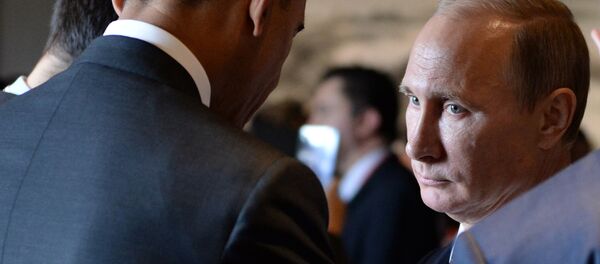Kosyrev said that if the Syrian Arab Army was "in a good shape," there would have been no ground for talks."It is also clear that the United States would not have agreed to this painful deal if there was a chance for Washington to 'win,' in other words to change the regime in Damascus or remain an influential power in the region. The agreement makes the latter possible," he said.
Russian Foreign Minister Sergei Lavrov and US Secretary of State John Kerry announced the breakthrough agreement during a press briefing on September 9. This is not "a comprehensive deal that would put an end to the war in Syria, but a ceasefire agreement" and it will be hard "to implement what has been agreed upon," the analyst explained.
"It's hard not to notice that the agreement primarily focuses on preventing Syria and its partners, including Russia, Iran, etc., from launching strikes against pro-American armed opposition groups. Theoretically, these militias must now stop fighting and focus on negotiating with Damascus," he said. "Bad people from Daesh will remain where they are to be destroyed perhaps in a joint operation involving the US, Russia and the Syrian authorities."
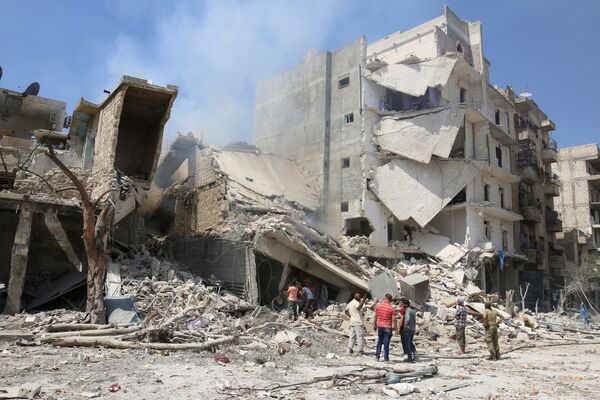
Lavrov called this task "a key priority". Both diplomats warned that the agreement is fragile due to the number of players involved in the devastating Syrian conflict which has claimed more than 280,000 lives and displaced millions of people.
Kosyrev noted that should radical groups try to capitalize on the upcoming secession of hostilities, the deal will crumble. In fact, he maintained that this is what will most likely happen.
"This will happen because someone on the ground will refuse to adhere to the agreement. There are so many militias embroiled in the Syrian conflict who answer to different commanders that this is a likely scenario," he noted.
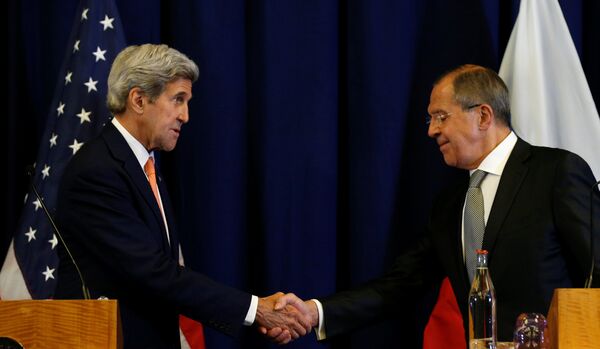
During a press briefing on September 9, Lavrov described the agreement as a "significant, practical and concrete" package, comprising five documents that will not be made public since they contain "rather sensitive and serious information." For his part, Kerry referred to the plan as "a more proscriptive and far-reaching approach than we have been able to put together to date."
The second step involves both sides establishing a Joint Implementation Center and, according to Kerry, "working together to develop military strikes" against al-Nusra Front, al-Qaeda's offshoot in Syria that has recently claimed to have severed ties with the terrorist organization, and Daesh, the brutal group that still controls large areas in Iraq and Syria.
Kosyrev maintained that the United States was more interested in the talks on the deal. "If the US wasn't interested, it would not have been ready to reach a compromise," he said, adding that Washington will try to "walk back on the agreement" since this is what "it has always done."
